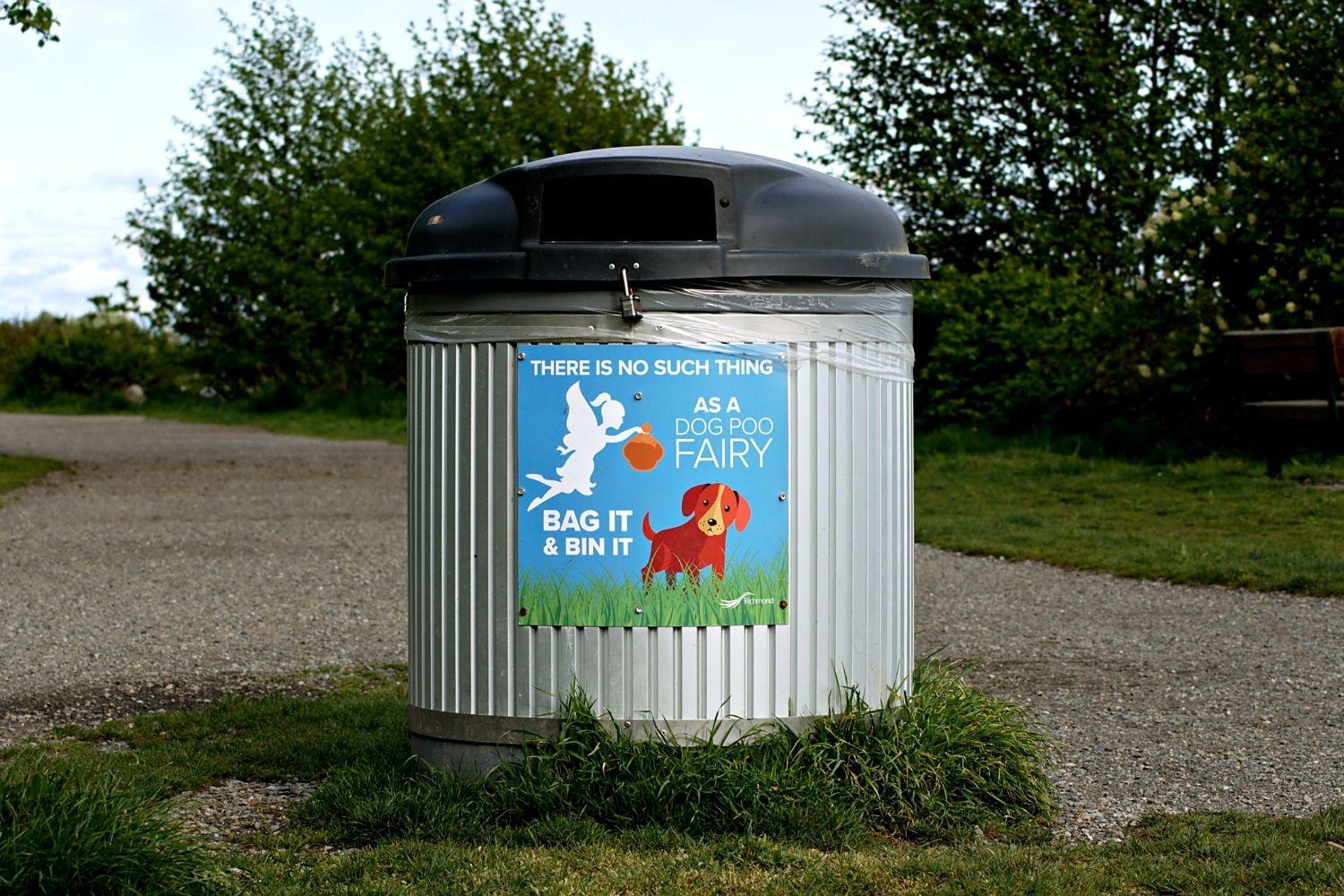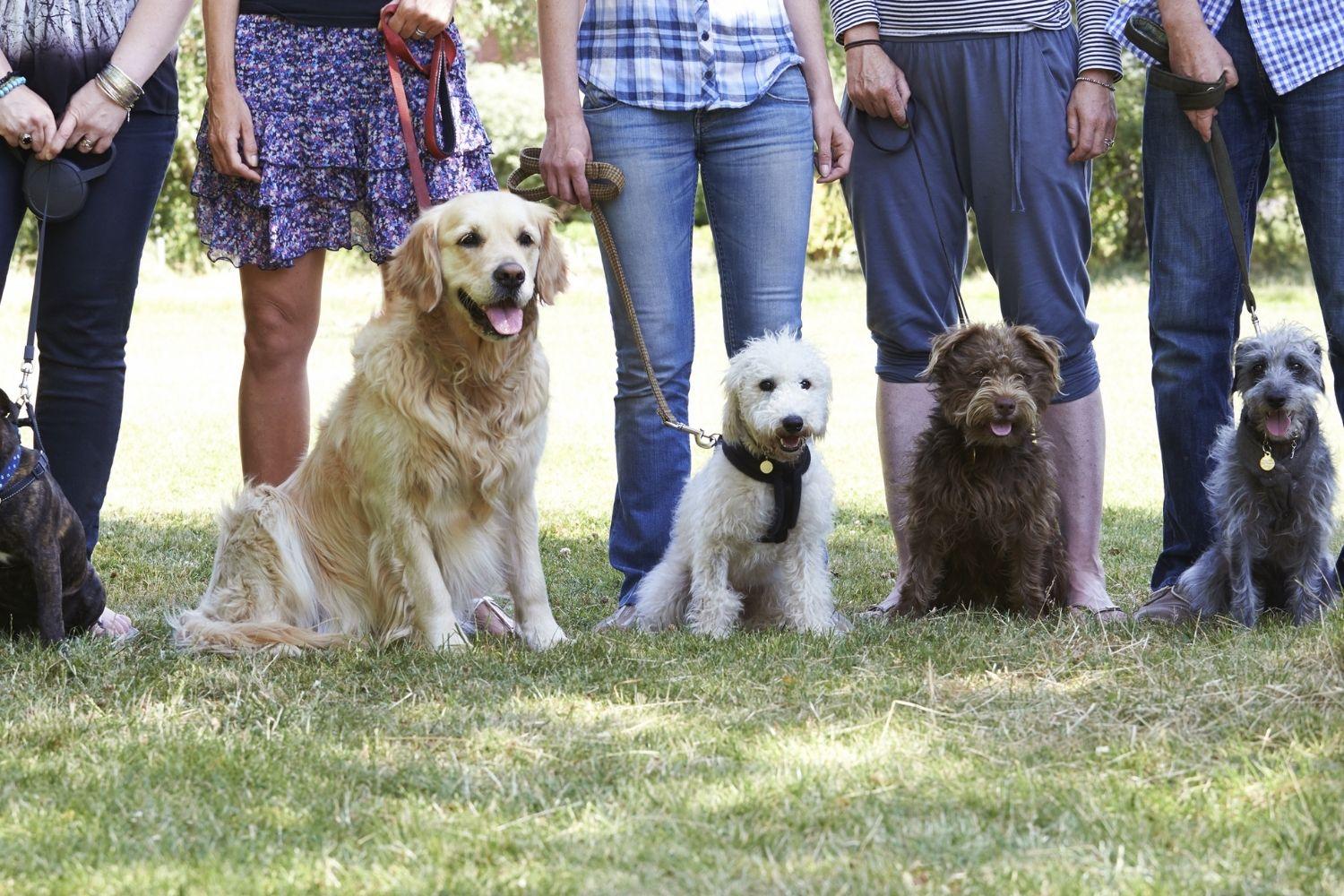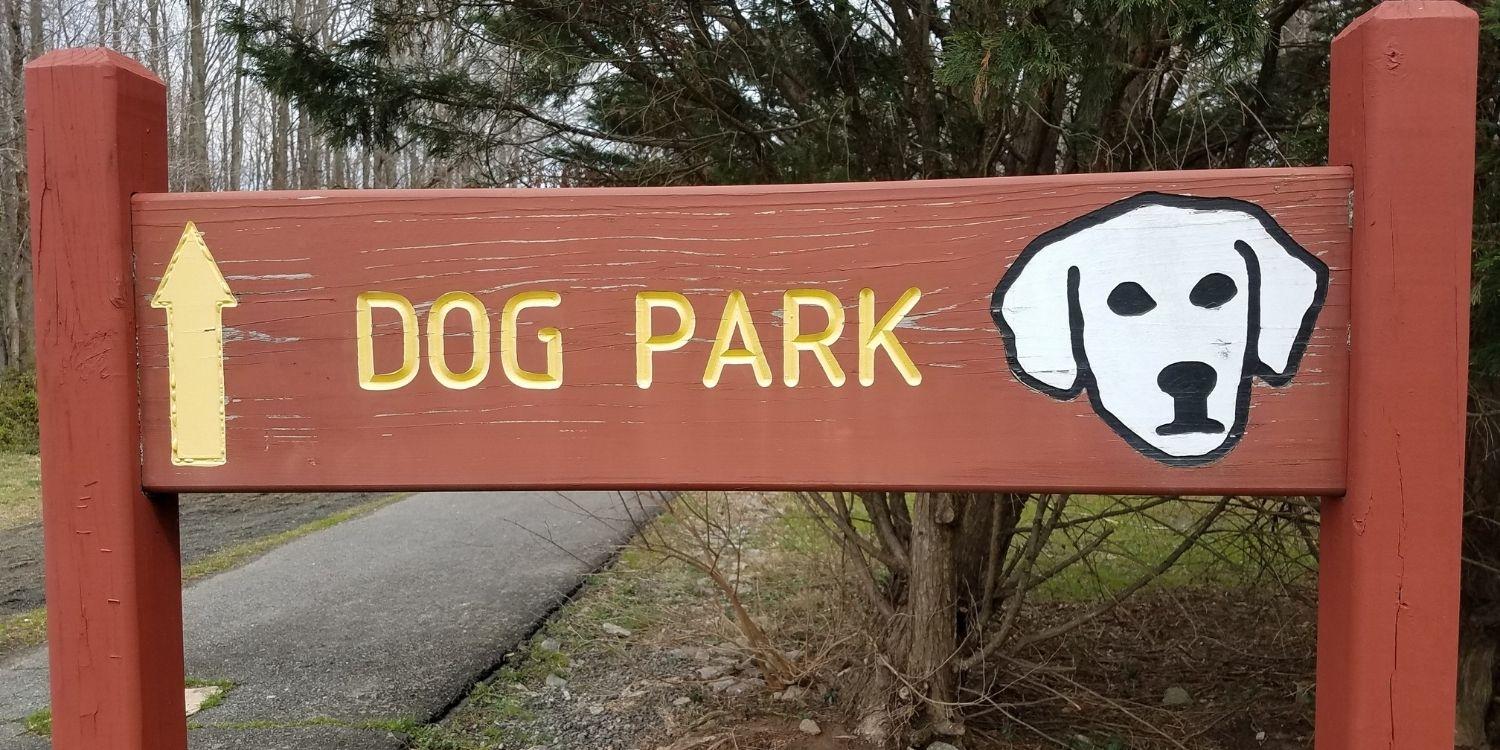What is good dog park etiquette?
Do you think your pup is ready for the dog parks? That’s great! But let’s go over some essentials ahead of time… just to make sure you’re both ready.
Dog parks are wonderful places where canines with little-to-no yard can run freely and get some great exercise. It’s also a great way for your dog to have some fun with other pups who want to run, jump, and play with them. Dogs are pack animals. And although you’re their pack, they enjoy playing with groups of other dogs too.
But before we get into the specifics of dog park etiquette, let’s talk about the dog park itself… and what to expect.

What do I need to know before going to a dog park?
If you’ve never been to a dog park, keep in mind that all dog parks are not created equally. They will vary in size, amenities, and honestly… cleanliness.
Most dog parks will have at least an acre of land, if not multiple acres. And most are fully fenced-in. But there are some “off-leash areas” for dogs that don’t have a fenced-in enclosure.
Features your dog park may or may not provide:
- Separate areas for small and large dogs
Some dog parks will actually have separate fenced-in sections for small and large dogs. This way, your tiny pup won’t accidentally get squished by a larger dog who wants to play rough and tough.
- Canine agility equipment
This is pretty cool. There are dog parks that provide canine agility equipment. This equipment is fun and interesting for dogs. It helps keep them to be more physically and mentally stimulated.
- Water stations
Most dog parks will provide some kind of water fountain, so you can fill up your pup’s water bowl. Some parks will even have water bowls provided. But it’s safer to only let your dog drink from their own water bowl, to avoid spreading disease.
- Waste stations
Most dog parks will also have “waste stations.” Meaning they provide poop bags for you to use, and they’ll have trash cans for you to dispose of your dog’s waste.
- Benches, picnic tables, and picnic pavilions
Not every park has benches, tables, or pavilions, but some dog parks do. And most at least have a few benches to sit on.
- Walking trails
Some dog parks will provide a paved or gravel walking trail around the exterior of the park, so that you can just take your dog on a walk, if you’d like.
- Water feature
This will depend on the park, and sometimes its location. But certain dog parks will provide kiddie pools filled with water for your dog to splash and play in. And others will actually have lakes, ponds, creeks, or rivers. There are even dog parks on beaches.

Dog park essentials
Before you take your crazy canine to a dog park, let’s talk about things you’ll need to do ahead of time, or bring with you. That way you and your dog will be prepared.
1. Vaccinations
Depending on the dog park you choose, they might require you to show proof of vaccinations ahead of time. And they might require your dog to be spayed or neutered too.
Even though some parks won’t require you to show proof… it’s healthiest for your dog, and safest for the other dogs to make sure that your pup is up-to-date on all vaccinations, and spayed/neutered.
2. Pass or permit
A lot of dog parks are completely free to use. But others do require a daily or yearly permit and fee. While this might sound annoying, it actually helps the park to be cleaner and better maintained with more amenities, and with safer restrictions.
3. Leash and harness
You don’t necessarily need a harness, but sometimes it’s nice to have a little extra control. But you will need a leash while you come and go from your car to the park. A leash is also helpful if your pup needs a break from playing with the others, or if you just want to stroll them around the park.
4. Poop bags
Remember, not every park provides waste stations. Even if they do, sometimes they are out of bags. And one of the biggest rules at any dog park is that you pick up after your dog. So make sure to bring your own poop bags, just in case.
5. Water and water bowl
And just like the poop bags… not every park provides water, or water bowls. You can easily bring a collapsible dog bowl with you. And bring either a bottle of water, or even a dog water bottle that has its own water bowl attached.

Why you shouldn’t take your dog to the dog park
Although dog parks are great for most dogs, they aren’t the right choice for every dog. Some dogs are too young, too old, too aggressive, or too timid.
- Too young
If your dog is too young, they might be too small to play with the big pups, and they won’t be fully vaccinated yet. Dogs under 4 months old shouldn’t go to the dog park yet, in case they come in contact with a disease they can’t fight yet.
- Too old
Older dogs tend to have hip and joint issues. And if a younger dog with lots of energy wants to run and wrestle with your senior dog—your dog could accidentally get seriously hurt.
- Too aggressive
It’s really important that your dog be “socialized” before they play with others at a dog park. I know this sounds like a Catch-22. Your dog needs socialization, but you can’t take them around the dog park until you know how they will react to other dogs.
But if you already know that your dog is aggressive toward other canines, you can’t take them to the dog park at all. I’ve seen dogs—who are sweet to humans—just snap all of a sudden at other dogs. And now the other dog is being rushed to the emergency vet.
- Too timid
Some dogs have anxiety issues—especially if they’ve had prior traumas. And throwing them into a scary situation with a bunch of high-energy dogs is not going to help. It could even cause them to snap at another dog.
Some dog parks will have separate sections for timid dogs. But otherwise, it’s best to keep your timid pup at home.
How to handle aggressive dogs or dog fights
Although you may be responsible enough to make sure your dog plays nicely with other dogs before bringing them to a dog park, other people might not. And honestly, dogs are dogs. Sometimes a dog will feel threatened for one reason or another, and they just react. So what do you do if this happens?
Watch for the signs
Dogs often enjoy playing rough, and even bark or growl while they play with each other. But be aware of the difference between playfulness and aggression.
“While growls are common in play, snarling with lips curled back isn’t. If you see these danger signs, redirect the dog with treats or a toy, [Rebecca Ruch-Gallie, DVM] says. You can also clap or make a loud noise. Use treats and toys only when needed in a dog park, in case they spark trouble.”
It’s important to be prepared for these situations ahead of time. And make sure your dog is already well-trained to listen to your commands.
If your dog is the one who has had aggression issues, and you need help with retraining your dog, you can always contact a certified animal behaviorist in your area.
How to find a dog park near you
Don’t let these worries stop you from the fun and excitement of a day at the dog park. We just want you to be prepared for the worst, while always hoping for the best!


